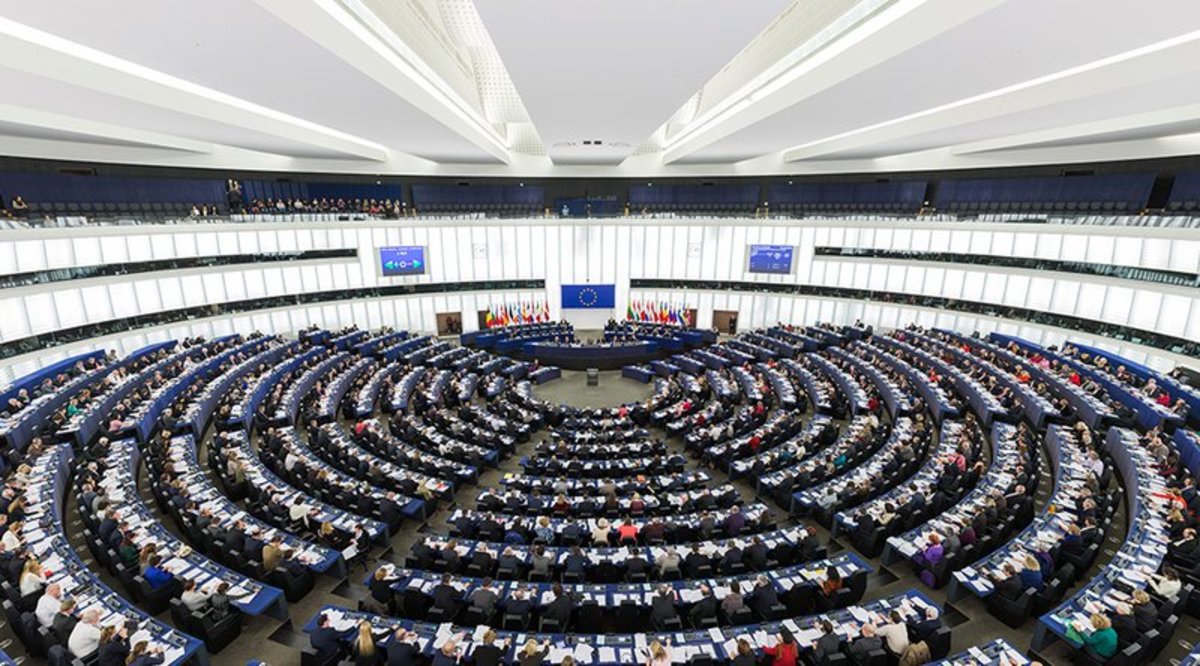
European Parliament members (MEPs) voted to take a hands-off approach to regulating blockchain technology, Ars Technicareports. Following the vote, unnamed sources told Ars Technica that European Commission staffers are working hard to understand the distributed ledger technology behind virtual currencies ‒ seven years after the launch of Bitcoin, with venture capital investments now totalling more than €1 billion.
The MEPs voted in a proposal, set out in a resolution (a short summary is also available) drafted by Jakob von Weizsäcker, which suggests that a new task force, which would be overseen by the European Commission, should build expertise in the underlying technology of virtual currencies. The proposal, which was passed by 542 votes to 51, with 11 abstentions, will now be sent to the European Commission.
The original title of the EU Parliament’s press announcement ‒ “MEPs call for virtual currency watchdog to combat money laundering and terrorism” ‒ seems to indicate that the MEPs voted in favor of a heavy-handed approach to blockchain technology regulation. But, as rightly noted by International Business Times, the title is misleading. The press announcement combines two different initiatives. One is the creation of a Virtual Currency Task Force, and the other is the inclusion of virtual currency exchanges within the scope of the European Anti-Money Laundering Directive. Neither of these implies the creation of a new regulator as such.
The proposal clearly states that distributed ledger technology should not be stifled by regulation at this early stage. The new task force would also be tasked with recommending any necessary legislation, but the text warns against taking a heavy-handed approach to this new technology which, it says, can offer significant opportunities for the consumer and economic development.
"To avoid stifling innovation, we favor precautionary monitoring rather than preemptive regulation. But IT innovations can spread very rapidly and become systemic. That's why we call on the commission to establish a task force to actively monitor how the technology evolves and to make timely proposals for specific regulation if, and when, the need arises," said von Weizsäcker.
“What we advocate in the report is not to stifle innovation by regulating now, but instead to closely monitor what is going on by the creation of a task force which we suggest should be created at the level of the commission, and then to regulate ‒ if and when the time is right to do so and if and when the structures to do so are in place,” reads the short version of Weizsäcker’s report. “That of course doesn’t mean that we shouldn’t do anything right now. For example, in the report we greatly welcome the suggestion of the commission to apply the Anti-Money Laundering Directive immediately for virtual currencies.”
"The starting point is not to regulate ‒ although you'd be forgiven for thinking it was [to regulate] when you read the headline from the press release,” Siân Jones, of the European Digital Currency and Blockchain Technology Forum, told International Business Times. "You might think here is Europe stepping in to regulate stuff, but actually if you read the report then you will realize that it's highly supportive. It's not proposing a watchdog body in the sense of a quango [quasi-autonomous , nongovernmental organization] or some other agency. The report definitely doesn't call for that kind of a body. The report is saying the EU is not trying to regulate virtual currencies in a day-to-day sense, but rather to allow the technology to continue to innovate."
“I agree that this is both an important and exciting area, and I welcome the very balanced approach to keep an eye on developments, embrace the opportunities, but be alert to the dangers,” said Finance Commissioner Jonathan Hill. “In recent months we have accelerated our work to examine whether it could be linked to funding terrorism activities.” Hill added that the EU Commission plans to set up a fintech task force.
Like many official documents issued by EU authorities, this resolution has a relatively high degree of purposeful ambiguity, and can be interpreted in different ways. It appears that the EU authorities intend to keep all doors open at this moment, in such a way as to keep the EU innovation engine running while at the same time developing options to intervene rapidly in case of need. In fact, the resolution emphasizes the differences between smart regulation and a hands-off approach.
“The key to smart regulation in such an environment of dynamic innovation is for the regulator to develop sufficient capacity, including technical expertise,” reads the full version of Weizsäcker’s report. “Preemptive and heavy-handed regulation that would stifle growth should and can be avoided. But such a smart regulatory regime based on analytical excellence and proportionality must not be confused with light-touch regulation. Rapid and forceful regulatory measures need to be part of the tool kit in order to address risks before they become systemic if and when appropriate.”
Photo David Iliff / Wikimedia










